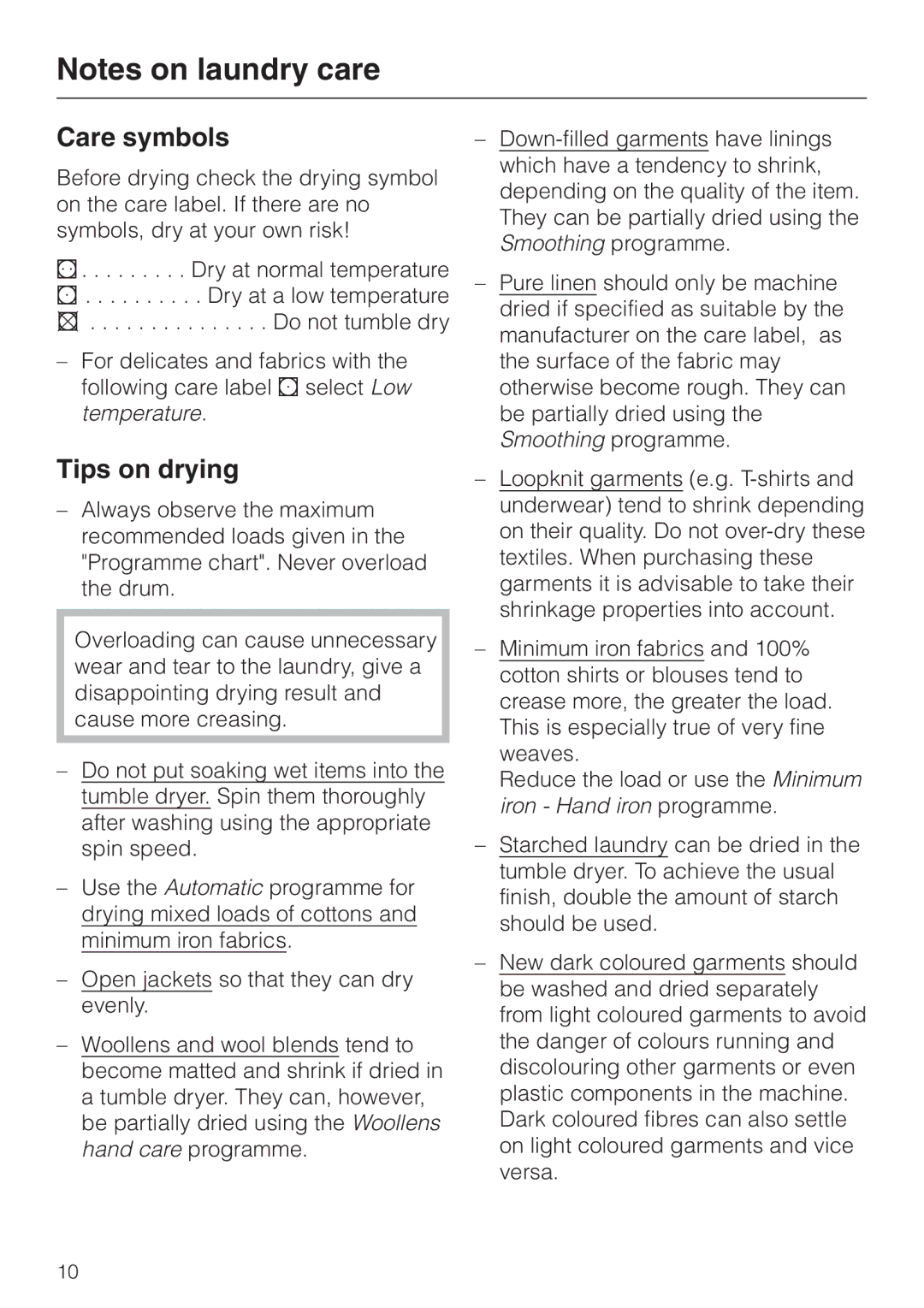
Notes on laundry care
Care symbols
Before drying check the drying symbol on the care label. If there are no symbols, dry at your own risk!
q. . . . . . . . . Dry at normal temperature r . . . . . . . . . . Dry at a low temperature s . . . . . . . . . . . . . . . Do not tumble dry
–For delicates and fabrics with the following care label r select Low temperature.
Tips on drying
–Always observe the maximum recommended loads given in the "Programme chart". Never overload the drum.
Overloading can cause unnecessary wear and tear to the laundry, give a disappointing drying result and cause more creasing.
–Do not put soaking wet items into the tumble dryer. Spin them thoroughly after washing using the appropriate spin speed.
–Use the Automatic programme for drying mixed loads of cottons and minimum iron fabrics.
–Open jackets so that they can dry evenly.
–Woollens and wool blends tend to become matted and shrink if dried in a tumble dryer. They can, however, be partially dried using the Woollens hand care programme.
–
–Pure linen should only be machine dried if specified as suitable by the manufacturer on the care label, as the surface of the fabric may otherwise become rough. They can be partially dried using the Smoothing programme.
–Loopknit garments (e.g.
–Minimum iron fabrics and 100% cotton shirts or blouses tend to crease more, the greater the load. This is especially true of very fine weaves.
Reduce the load or use the Minimum iron - Hand iron programme.
–Starched laundry can be dried in the tumble dryer. To achieve the usual finish, double the amount of starch should be used.
–New dark coloured garments should be washed and dried separately from light coloured garments to avoid the danger of colours running and discolouring other garments or even plastic components in the machine. Dark coloured fibres can also settle on light coloured garments and vice versa.
10
